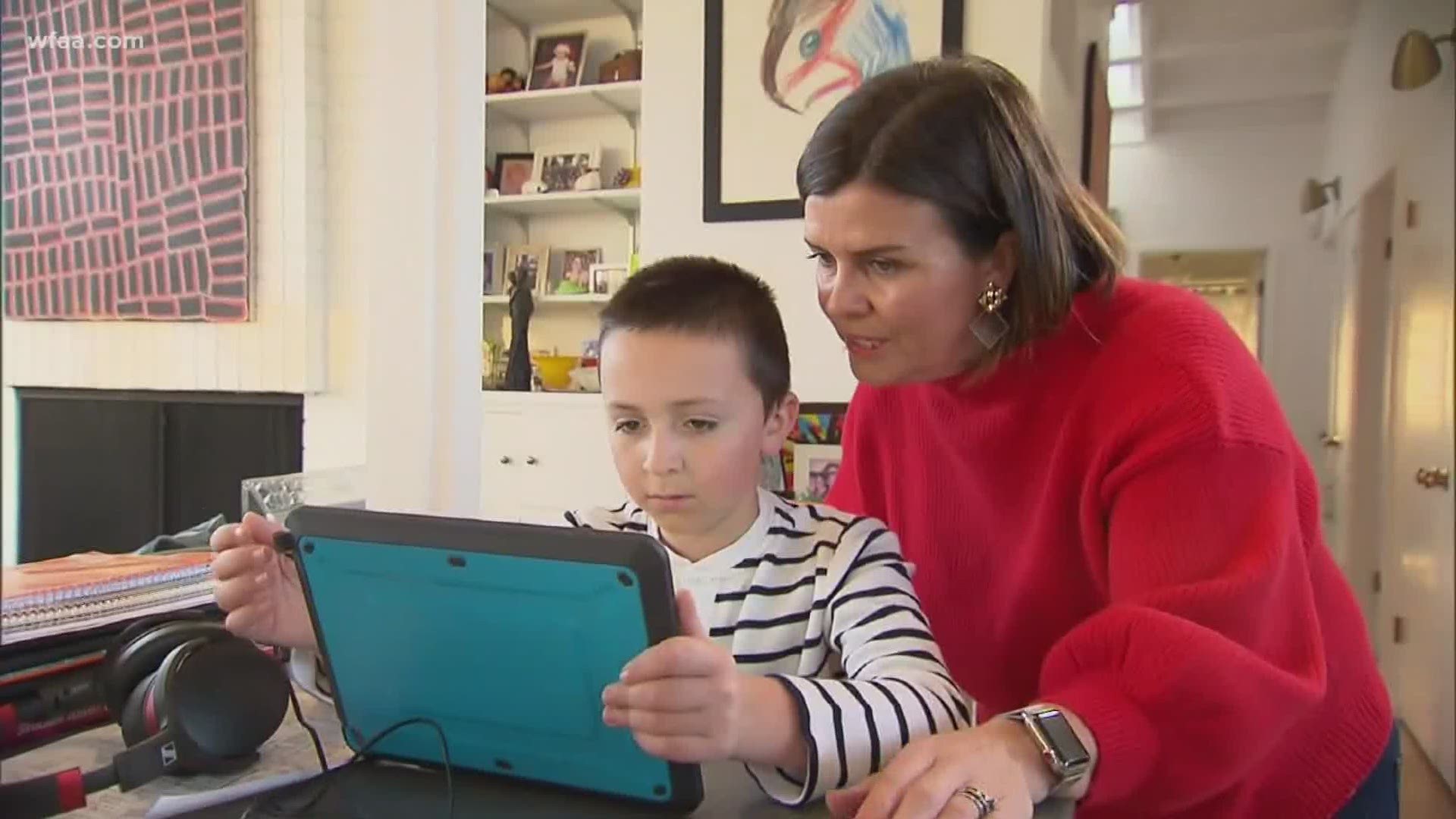Search google for “online educational content” and you’ll find 126,000 results. That just goes to show how many options parents have to choose from.
The pandemic has seen an increased need for these resources as parents try to help educate their kids during school closures and uncertainty about the fall.
But Lauren Minor, a former teacher and curriculum creator, explained it doesn’t have to be a stressful crisis of choices.
“Sometimes we can get paralyzed in this fear of making a decision, worried we’ll make the wrong one," she explained. "Every option has the opportunity for the child to be successful.”
That provides some comfort, because it can be stressful trying to pick one option. Between ABC Mouse, Khan Academy, PBS Kids, Sesame Street and so many others, choices abound.
Whether it’s education-focused videos or just content to keep your kids entertained and moving, there seems to be something for everyone. Which is why it’s important to know your own child’s needs.
“What do they easily engage with?” Minor asks. “Are they more tactile? Do they like working with their hands? And then, what excites them? Do they get really excited about and feel successful when they complete a workbook page or do they feel really excited and successful when they complete a science experiment?”
Those are the questions parents should try to answer when making their plan.
Fortunately, many subscription-based offerings allow for a trial period. Minor explained that’s a great way to see what works for your family.
“I would recommend looking into a few trials right now and seeing which ones your child really engages with and feels successful in doing.”
An option my family has enjoyed is GoNoodle. They’ve partnered with teachers to create content that gets kids moving. It’s designed for the whole family to enjoy together.
Their videos are seen in roughly 80% of the nation’s public elementary schools, on YouTube and via their app. Obviously many parents are worried about that much screen time.
But the American Academy of Pediatrics has said that not all screen time is created equal, and screen time spent on educational content can be especially beneficial.
“I think parents grapple a lot with the guilt they feel putting their kids in front of a screen,” said GoNoodle Chief Marketing Officer Julie Crabill. “How does playing a game differ from watching a television program? How do different games differ from each other? So we’re all about making screen time active time, or giving parents an option that is an active screen time option.”
One concern that’s become especially prominent in recent weeks is representation. Do our kids see a world on-screen that reflects America’s demographics? A Tufts University study found that it’s not even close.
Crabill said their creators are paying attention and making changes.
“How we can be all about the whole child? It’s about inclusivity, it’s about diversity, how can we be sure that every child in America sees themselves reflected?”
Ultimately, all of these choices mean parents have more power than ever. Which is comforting given the very real fear of our kids falling behind.
Minor believes there’s reason to be hopeful, as well, because the style of learning that’s become necessary as a result of the coronavirus pandemic is something that could benefit our kids well into the future.
“It’s a major blessing to have all of these options in front of us. Having children work from home and be more student-driven is going to be a great tool for them to learn how to self pace and take control of their education,” she explained. “I think we’re going to see these kids be really successful in college when this is the type of learning they have— when there’s not a teacher standing over them making sure everything is complete.”

